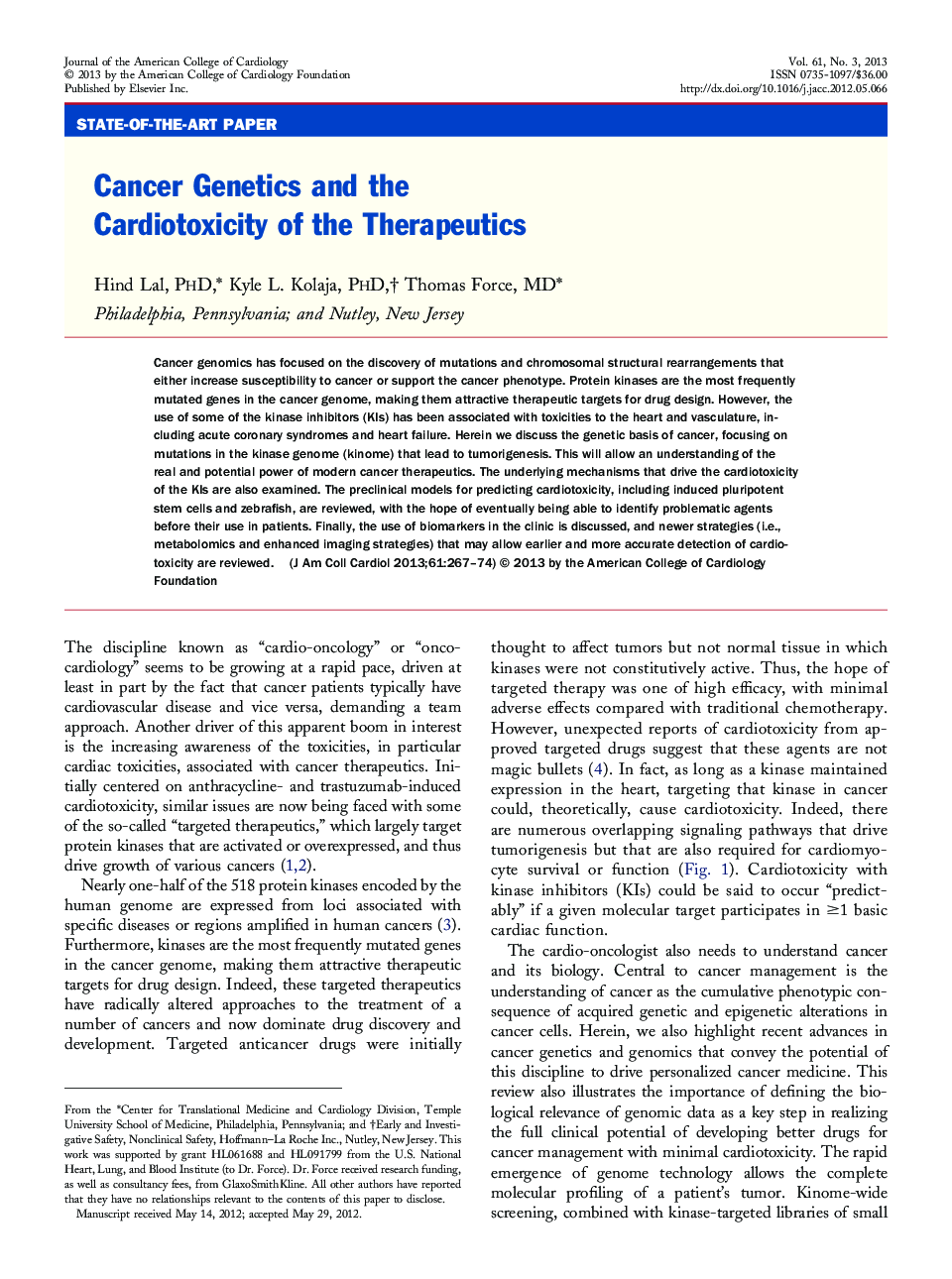| Article ID | Journal | Published Year | Pages | File Type |
|---|---|---|---|---|
| 2945966 | Journal of the American College of Cardiology | 2013 | 8 Pages |
Cancer genomics has focused on the discovery of mutations and chromosomal structural rearrangements that either increase susceptibility to cancer or support the cancer phenotype. Protein kinases are the most frequently mutated genes in the cancer genome, making them attractive therapeutic targets for drug design. However, the use of some of the kinase inhibitors (KIs) has been associated with toxicities to the heart and vasculature, including acute coronary syndromes and heart failure. Herein we discuss the genetic basis of cancer, focusing on mutations in the kinase genome (kinome) that lead to tumorigenesis. This will allow an understanding of the real and potential power of modern cancer therapeutics. The underlying mechanisms that drive the cardiotoxicity of the KIs are also examined. The preclinical models for predicting cardiotoxicity, including induced pluripotent stem cells and zebrafish, are reviewed, with the hope of eventually being able to identify problematic agents before their use in patients. Finally, the use of biomarkers in the clinic is discussed, and newer strategies (i.e., metabolomics and enhanced imaging strategies) that may allow earlier and more accurate detection of cardiotoxicity are reviewed.
